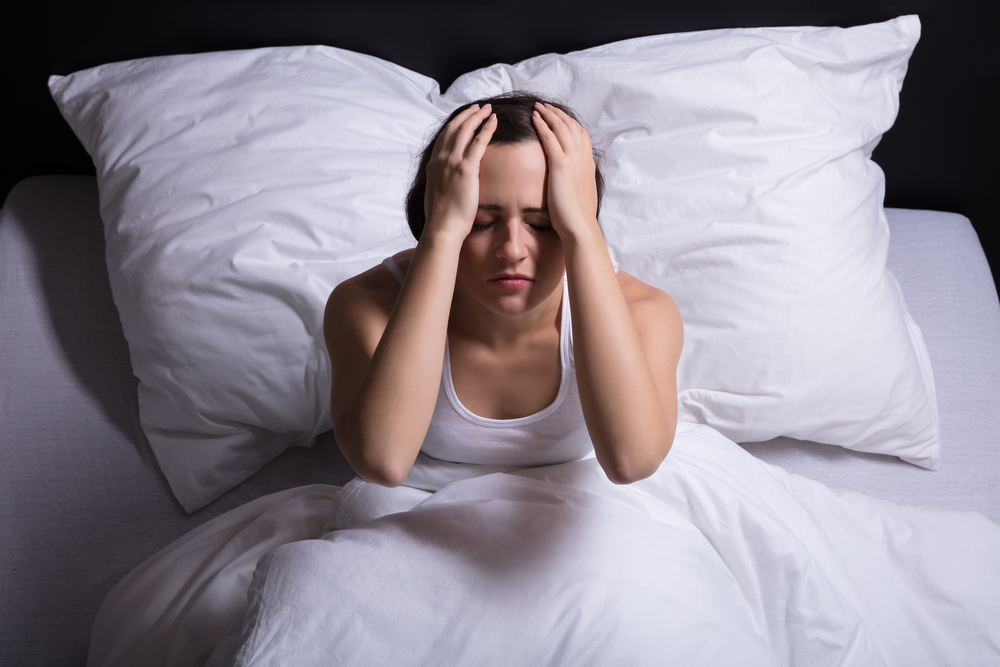The Correlation between Stress & Insomnia
Technology drives today’s world with overwhelming levels of new information. Our pace of life is faster than ever, and a 24-hour day is somehow insufficient for our lifestyle. So is there a correlation between stress & insomnia?
Demands of home life and family are often challenging, while market forces continually push us to adopt the newest styles and trends. And let’s not forget your concerns, obligations, fears, and the news, with its reports of ominous world events.
All of these realities can cause stress to accumulate, potentially affecting your health and well-being.
Stress abounds and can be difficult to avoid in this 21st-century.
About Stress
A crucial element of our biology, stress prepares us to face difficult and dangerous circumstances. Hormones like adrenaline launch the fight-or-flight response, increasing breathing and heart rates, blood pressure, blood sugar, muscle tension, and alertness while decreasing sensitivity to pain and slowing digestion.
Next comes the HPA axis (hypothalamus-pituitary-adrenal axis), initiating a storm of hormones like cortisol in substantial amounts during stressful times. Cortisol delegates energy to thwart the immediate threat and away from less urgent efforts like your immune system and healing.
While most stress is transient and situational, ongoing and repeated exposure to stressors can result in chronic stress, significantly impacting your life and health.
Insomnia and Stress
These two dynamics are like the proverbial chicken and egg; stress can lead to insomnia, and insomnia can lead to stress. It’s like a cruel joke, a never-ending cycle, a merry-go-round that you seemingly can’t disembark.
Increases in hormone levels like cortisol and adrenaline occurring during stress and insomnia are counterproductive when trying to sleep.
During rest and recovery, your metabolism slows to preserve cerebral glucose, which is essential to life. Insomnia causes adrenaline production speeding up metabolism and burning this crucial resource of cerebral glucose even as you sleep.
And although you may be sleeping, your sleep quality is likely inferior. The four stages of sleep necessary for recovery and restoration are at risk from stress. Interrupting these cycles poses a significant threat to your health and quality of life.
It is easy to see how stress, responsible for sharpening our senses to protect us from danger, can be detrimental to our sleep.
Nothing about stress is restful.
Chronic Stress and Health Risks
Stress-related insomnia robs you of adequate sleep, which has a substantial and far-reaching impact on your health. Getting sufficient sleep helps your body and brain recuperate and prepare for the next day. Every system in your body is dependent on the sleep cycle process to maintain proper function.
Persistent stress has many troubling tendencies that are problematic and potentially life-altering. With chronic stress, your heart works too hard for too long, increasing your chances of a heart attack or stroke along with your blood pressure.
Due to chronic stress, you may pick up unhealthy behaviors like overeating or avoiding food, withdrawing socially, and substance abuse.
Although stress does not cause ulcers, it can increase your risk and inflame existing ulcers. You may experience diarrhea, constipation, stomach aches, nausea, and vomiting due to sustained stress.
For women, this condition can cause an abnormal menstrual cycle and intensify many symptoms of menopause.
Continual stress will eventually weaken your immune system making wounds harder to heal and your body more susceptible to viruses like the flu and other infections.
The unpleasant outcomes of chronic stress are virtually endless.
What Can You Do?
Avoiding stress altogether is virtually impossible. So, what can you do to reduce the impact of stress on your sleep?
Adopting beneficial day-to-day routines like a healthy diet and regular exercise can help alleviate much of your stress. Other measures you can take include:
Following a Sleep Schedule
Try going to bed and waking up at the same time each day.
Make Your Bedroom a Relaxing Environment
Minimize your exposure to light and outside noise.
Reduce Your Stimulant Consumption
Snub caffeine, nicotine, and other energizing substances before bedtime.
Stow Your Electronics
Blue light from smartphones, TVs, and computers¶ can hinder sleep.
Avoid Alcohol
Alcohol may make you l drowsy, but it also causes sleep fragmentation.
Your Best Option for Stress-Free Sleep
Conquering stress and insomnia is a steep climb to attempt solo. Sleep Science Academy’s mission is to help people achieve restorative sleep nightly. Our unique coaching model and extensive experience aiding individuals in the pursuit of a good night’s sleep provide the learning and tools you need.
Here is what some of our clients are saying about their results after working with Sleep Science Academy.
Why wait? Contact us today to learn how to conquer stress and insomnia for a better life.
Helpful Videos
Watch BEFORE You Take Another Sleeping Pill

